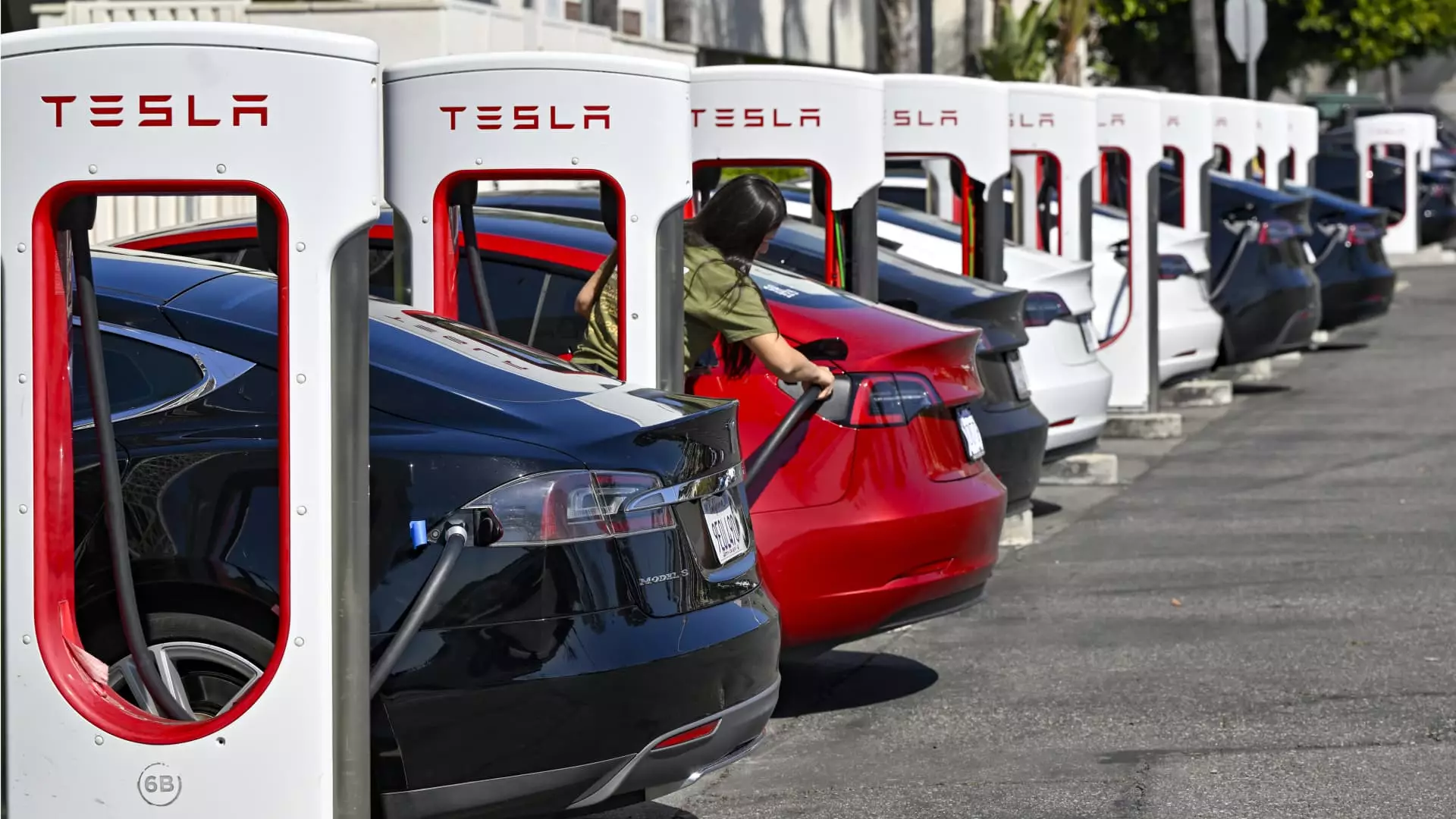The automotive industry has long been plagued by the problem of depreciation, where a car’s value significantly decreases as soon as it leaves the dealership lot. However, electric vehicles (EVs) are now facing an even more severe depreciation issue, making them a less attractive option for potential buyers. A recent study revealed that the average price of a used EV in the U.S. has plummeted by 31.8% over the past year, resulting in a staggering value loss of $14,418. This sharp decline in value poses a significant hurdle to the widespread adoption of EVs.
The substantial decrease in used EV prices may make these vehicles more appealing to certain buyers looking for a good deal. However, it could also have a detrimental effect on the demand for new electric vehicles. Karl Brauer, an executive analyst at iSeeCars, pointed out that the rapid depreciation of EVs could deter potential buyers who are wary of investing in a vehicle that loses its value so quickly. This loss of value in the first few years of ownership is a critical factor that drives consumers away from purchasing a new EV.
Stock analyst David Kuo drew a parallel between EVs and consumer electronics, such as laptops and cell phones, emphasizing that these products tend to lose value rapidly after purchase. The high depreciation rate of EVs, according to Kuo, could make them a risky investment for consumers. He highlighted the potential cost of buying an EV, which can quickly depreciate within a year, far outpacing the depreciation of traditional internal combustion engine vehicles.
Industry insiders have acknowledged the challenges in the EV market, particularly regarding resale value. Representatives from major automakers, including VW and Toyota, have expressed concerns about the impact of depreciation on the value proposition of their electric vehicles. Kuo further raised the issue of outdated software and computing capabilities in used EVs, which could render them incompatible with future updates, leading buyers to regret their initial purchases.
While the depreciation of EVs is a significant concern, it may be influenced by market conditions rather than inherent flaws in the technology itself. iSeeCars attributed the sharp decline in used EV values in the U.S. to aggressive price reductions by Tesla and the ensuing price war in the EV market. Tesla’s dominant position in the EV sector has led to lower prices for new vehicles, affecting the pricing of used alternatives and creating a downward spiral in the market.
The Price War and Overproduction Challenges
Tesla’s CEO, Elon Musk, defended the company’s price cuts as necessary to make EVs more affordable for consumers. However, these price reductions have fueled a price war in the EV market, particularly between Tesla and Chinese competitors. The overproduction of EVs relative to demand has exacerbated the issue, creating an oversupply that is likely to keep new and used EV prices low for the foreseeable future. Despite efforts to reduce costs, the depreciation dilemma facing EVs remains a pressing concern for the industry.
The rapid depreciation of electric vehicles poses a significant challenge to their widespread adoption. While market conditions and price wars contribute to the issue, consumers remain hesitant to invest in vehicles that lose their value at such an alarming rate. Addressing the depreciation dilemma is crucial for the long-term success and sustainability of the EV market.

